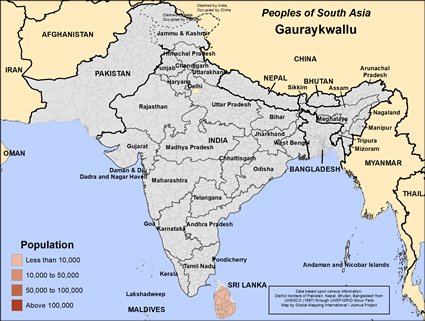The Buddhist Gauraykwallu people of Sri Lanka have long been an integral part of the island's history, especially in the central and southern regions. Their ancestry traces back to ancient Sinhalese communities, and over time, they have preserved their Buddhist traditions while adapting to the social and political changes around them. Historically, the Gauraykwallu were involved in agriculture and trade, contributing to the local economy through farming and small-scale commerce. Their connection to the land and their strong adherence to Buddhist teachings have shaped their identity and way of life.
The Gauraykwallu people primarily work as farmers, cultivating rice, vegetables and fruits. Agriculture remains at the heart of their daily lives, with families participating in communal farming activities. Many Gauraykwallu live in rural villages, where family units form the basis of social organization. Homes are typically constructed using locally available materials such as clay, wood and thatch, and are designed to suit the tropical climate.
Their lifestyle revolves around the agricultural calendar, with planting, harvesting and festival times marking the rhythms of the year. While some Gauraykwallu have moved to urban centers in search of economic opportunities, most remain closely tied to their rural way of life. In addition to farming, some families engage in small-scale businesses or cottage industries, producing goods such as pottery or woven textiles.
The Gauraykwallu are devout followers of Theravada Buddhism, the primary religious tradition in Sri Lanka. Their spiritual life centers around Buddhist temples, where they gather for worship, festivals and community discussions. The teachings of the Buddha guide their daily actions, emphasizing values like non-violence, compassion and mindfulness.
Buddhist rituals play a significant role in their lives, with ceremonies marking important events such as births, weddings, and funerals. Major festivals, including Vesak, celebrate the life of the Buddha and are times of reflection and generosity. The Gauraykwallu also observe Poya days, lunar holidays that involve temple visits, meditation and offerings to monks. Ancestral worship, though less prominent than in other groups, still plays a role, as the Gauraykwallu honor their ancestors during specific rituals and prayers.
The Gauraykwallu face several socio-economic challenges, particularly in rural areas. Access to education and healthcare is limited, leaving many families without the resources necessary to improve their quality of life. Agricultural yields are often affected by unpredictable weather patterns, making subsistence farming difficult. Economic opportunities beyond agriculture are also scarce, and many Gauraykwallu youth migrate to urban areas in search of better livelihoods, which puts pressure on the continuity of traditional practices. To address these challenges, development programs focusing on improved agricultural practices, sustainable farming, access to quality education, and healthcare services are vital.
Pray for workers to go to the Gauraykwallu people, and for their hearts to be ready to receive their savior.
Pray for families of believers loving and serving others to grow reproducing churches.
Pray for a chain reaction of families reaching families that results in thousands of new believers who share their faith with others.
Pray for grace and truth expanding into their entire society as all believers learn to love others.
Scripture Prayers for the Gauraykwallu in Sri Lanka.
Ethnologue: Languages of the World
Reports from Sri Lankan NGOs on rural development
Academic research on agricultural and Buddhist communities in Sri Lanka
| Profile Source: Joshua Project |











